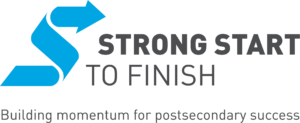
It is not often that an educational reform movement takes hold in both policy and practice. Yet, over the past decade the momentum to reform developmental education has intensified. Here are three reasons why.
First, the research is conclusive. Save the few, students who are placed into developmental education math and English courses meant to remediate perceived academic deficits never complete the courses nor enter credit-bearing courses that are part of a program of study. Rigorous research now shows that reforms focused on changing institutional policy and practice are much more likely to help students complete the course and even graduate than traditional developmental education courses.
Second, the reforms are jointly owned. Momentum for developmental reform continues as those involved do not place the blame for poor outcomes on the backs of one group; rather, they acknowledge the role of policy at both the state and institutional levels and practitioners at the campus level, all of whom jointly remove barriers in the following ways:
- Placing students in the right courses using policies co-constructed with system and campus leadership.
- Accelerating a student’s academic experience by faculty and administrators by providing the support students need to pass a credit-bearing math and English course in their first year of study.
- Aligning curricula between developmental and the first credit-bearing math and English courses led by faculty and academic departments with a focus on rigor.
- Integrating the appropriate credit-bearing math and English courses within a program of study through program committees within campuses and system leadership support.
- Supporting faculty and staff as they modify their practice and expand their expertise.
- Embedding student supports into math and English courses via partnerships between faculty and advisors.
- Refining policy and practice as a campus community as a component of implementation to ensure outcomes do not differ across student characteristics, such as age, ethnicity, income or race.
- Measuring institutional, research-based policy goals and outcomes.
- Scaling reforms to all students so the impact is part of campus culture and not reserved for a select population of students.
Third, the change is demand-driven. One more reason momentum continues to build has to do with systems of higher education expressing an interest in working at scale. For example, when Education Commission of the States put out a call for letters of interest in scaling developmental education reforms — within a select and limited group of states — through its Strong Start to Finish initiative, it received 47 responses and ultimately was able to support four. This signaled that demand from the field for implementation support was strong. Two more systems have joined SSTF, and now it represents six systems — comprising 250 institutions and serving nearly 4 million undergraduates. Since the launch of SSTF, system leaders have consistently reached out to SSTF and Education Commission of the States staff seeking advice for moving reforms forward in their state, as well as for information about how to engage the learning community created through the initiative.
To support the educational experiences of students who benefit from these reforms and system leadership seeking strategic and technical guidance to support student success, Strong Start to Finish launched the Seeding Site Grant Program this week. The program provides targeted technical and strategic assistance to support ongoing efforts of systems preparing to implement developmental education reforms at scale through competitive grants. The program is open to systems within all 50 states, with primary consideration given to applications submitted by Jan. 21.
It is for these reasons that momentum for developmental education reform grows and grows and grows. Strong Start to Finish looks forward to continuing to watch, and where possible, support this research-guided, jointly owned and demand-driven reform.









